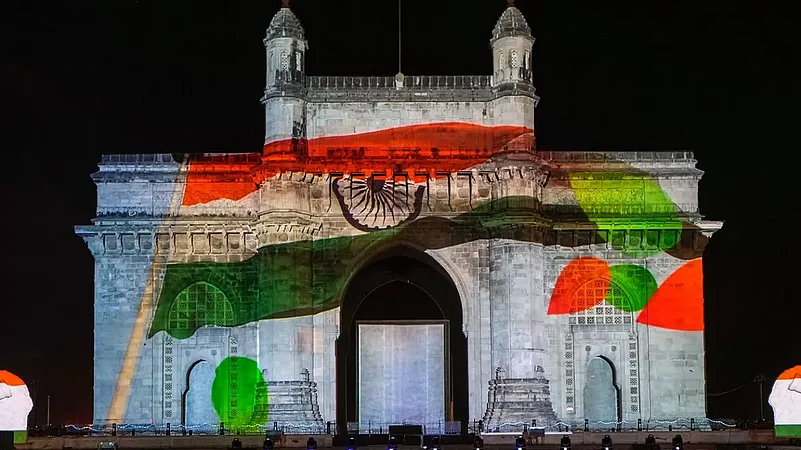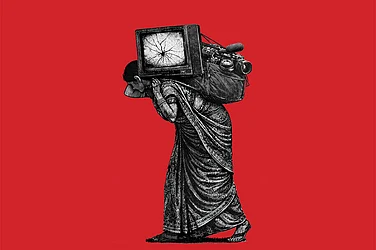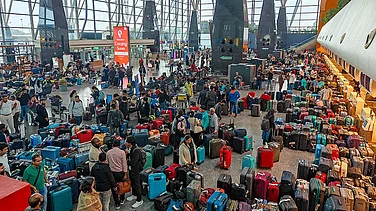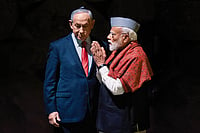G20 has never been celebrated as it is being done in India. Prime Minister Narendra Modi and G20 cut-outs are on your face at airports, train stations, and major street junctions across cities and towns of India. Since taking over the rotational presidency of the group from Indonesia in December 2022, the Indian government has gone all out to project it as a major international event.
New Delhi is holding nearly 200 meetings spread across some 50 cities in various parts of India, leading up to the grand finale in September with heads of state and government in attendance in New Delhi.
What is so special about the G20 that is making India go all out to make a mark? After all, summits are held each year in other countries without much drum-beating.
It is a fact that this is the first time that India is holding the presidency and Modi will host around 20 (19 plus the European Union) of the most important world leaders including US President Joe Biden, China’s Xi Jinping, France’s Emmanuel Macron, the UK's Rishi Sunak, Australia’s Anthony Albanese, German chancellor Olaf Scholz, and Japan’s Fumio Kishida. Vladimir Putin will attend depending on the situation of the current war in Ukraine.
The Indian elites have always believed that a country of India’s size and potential should play a much more important role on the world stage and a large section of the middle class feels that under PM Modi that time has finally arrived. But not all are on the same page about this.
Critics of the government point to the fact that the glittering international show ahead of elections next year would be used to focus on Modi’s credentials as a statesman. Ordinary citizens who know little about the working of such forums will be wonder-struck at the bonhomie that will be on display between Modi and world leaders. This will help the BJP’s bid to return to power in 2024.
The G20 was founded around 1999, following the Asian financial meltdown and was essentially an economic forum attended by finance ministers and heads of the various reserve banks. The G20 brings together the rich industrialised and major emerging economies on the same platform to work for financial and economic stability.
The Group of 20 was upgraded in 2007 to include heads of state and governments tasked with restoring economic growth after the 2007-08 financial crisis triggered by the collapse of the US housing market. The tremors of the collapse led to instability and contraction of liquidity in financial markets across the world. The effort by the Group of 20 was to cool down panic and assure the financial markets that governments would work together to uphold the financial system. The group succeeded in stemming the panic and restoring financial stability.
Over the years, the G20 has extended beyond mere economics and as of now has brought division within its ranks by dragging the Ukraine War into the discussions. No consensus for a final communique of the G20 finance and foreign ministers meeting could evolve thanks to differences of member states on the Ukraine War. Russia and China stoutly opposed the joint communique over the US and Western efforts to criticise Moscow’s aggression.
India is keen that the G20 remain an economic platform and not get sidetracked into divisive strategic and political issues. New Delhi rightly points to the fact that following the Covid-19 pandemic and the shutdown of economic activities, disruption of global supply chains has battered developing countries across Asia and Africa. It is time that the G20 pay heed to their plight. In fact, India has promised to take their problems to the G20 forum. In fact, a virtual summit, aptly called the Voice of the Global South, was organised by India where Modi interacted with leaders of African and Asian countries to hear their problems to enable India to present them at the G20 Summit. If India succeeds in highlighting the problems of the Global South and gets the rich industrialised nations to lend a helping hand, the summit will be a success.
"India’s chairmanship of G20 comes at an opportune time when the world is moving away from globalisation to restricted national silos. In a half-filled bottle syndrome, India has the chance to really shake up the bottle and take up the cause of the global south which is largely unrepresented in G20. South Africa is a single country that represents the entire African continent. So here is an opportunity for India to get back to the fifties and sixties when India showed a new light to the emerging world," former ambassador Rajiv Dogra had said to Outlook ahead of the G20 foreign ministers in March this year. What he said applies to the Summit as well. He further said, "Economic and financial issues were the raison d’etre of G20, but over the last year acrimony and conflict have taken centre-stage….. Will G20 get into the swamp of the West against Russia and China verbiage? Or will the ministers show statesmanship and think of debt relief packages for countries in distress."
It is a tough ask to get the West and Russia and China to be on the same page. But if India can build a consensus on the economy and get a commitment of assistance for the Global South, the effort of holding the jamboree will have been worth it.























